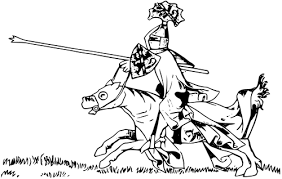 Odd, isn’t it, how many words we associate with Halloween’s horror begin with the letter “g”? I covered “grotesque” back in 2018. Let’s have a look at a few others that spring, like a zombie from its grave, to mind.
Odd, isn’t it, how many words we associate with Halloween’s horror begin with the letter “g”? I covered “grotesque” back in 2018. Let’s have a look at a few others that spring, like a zombie from its grave, to mind.
Gruesome: We do not hear this one as much as our next word, though I associate gruesome things with gore. The OED blames Sir Walter Scott for introducing our word to literature, in the sense of “Inspiring fear, awe, or horror; such as to cause one to shudder with fear; fearful, horrible; grisly.” Grisly: there’s another G word for Halloween. In any case, thank you, Sir Walter Scott; your giving us this word is nothing, compared to how Mark Twain blamed your books for the Civil War.
Gory: Without getting visceral here, we know what this one entails (or entrails). Covered with blood! Yikes. Here’s The OED entry.
Ghastly: This word sounds almost prim, in comparison to the rest of our list. From Middle English, according to The OED, this type of terror gets associated with…guess what? The sight of carnage or death! In its obsolete sense, it’s a Downton Abbey word for something repellant, in the sense of “oh, Heavens! Her silver service looks ghastly!”
Ghoulish: I think of a ghoul (thank you, H.P. Lovecraft) as a creature that eats dead bodies. Long before Night of The Living Dead, we had such fiends in speculative literature. So what does The OED say? It notes that if you resemble a flesh-eater, or take an unnatural interest in these matters, you are ghoulish. Right now, that would include me. I like that we have, in part, an Arabic loan-word at play here, from a creature out of The Arabian Nights.
Ghostly: Even if we have not seen a ghost, we know what the word implies: a disembodied soul wandering the earth. It is an old word, going back to Germanic origins. The adjective form has a history nearly as long, but in our sense of something eerie or unnatural, we only need to time-travel back to the 18th Century. It’s a fascinating word with many obsolete meanings, as a long OED entry explains.
Grim: Given his job, how could he be the “Happy Reaper”? As with “ghost” The OED notes that the word came to the British Isles via the Grendel-haunted fens of Frisia and Germany, where the spelling was the same. Savage, cruel, fierce: all are wrapped up in this grim word.
Happy Halloween! My movie pick for 2021? 1983’s The Hunger! Catherine Deneuve and David Bowie are the most stylish vampires, ever.
If you have a word or metaphor you enjoy, send them by e-mail (jessid -at- richmond -dot- edu) or leaving a comment below.
See all of our Metaphors of the Month here and Words of the Week here.
image from…never you mind. Keep your lights on.
 Here’s a new word, first noted in 1989 by The OED’s entry. It’s an apt term for human-generated climate change! First we had an A-Bomb, then an H-Bomb to trouble our sleep.
Here’s a new word, first noted in 1989 by The OED’s entry. It’s an apt term for human-generated climate change! First we had an A-Bomb, then an H-Bomb to trouble our sleep.







